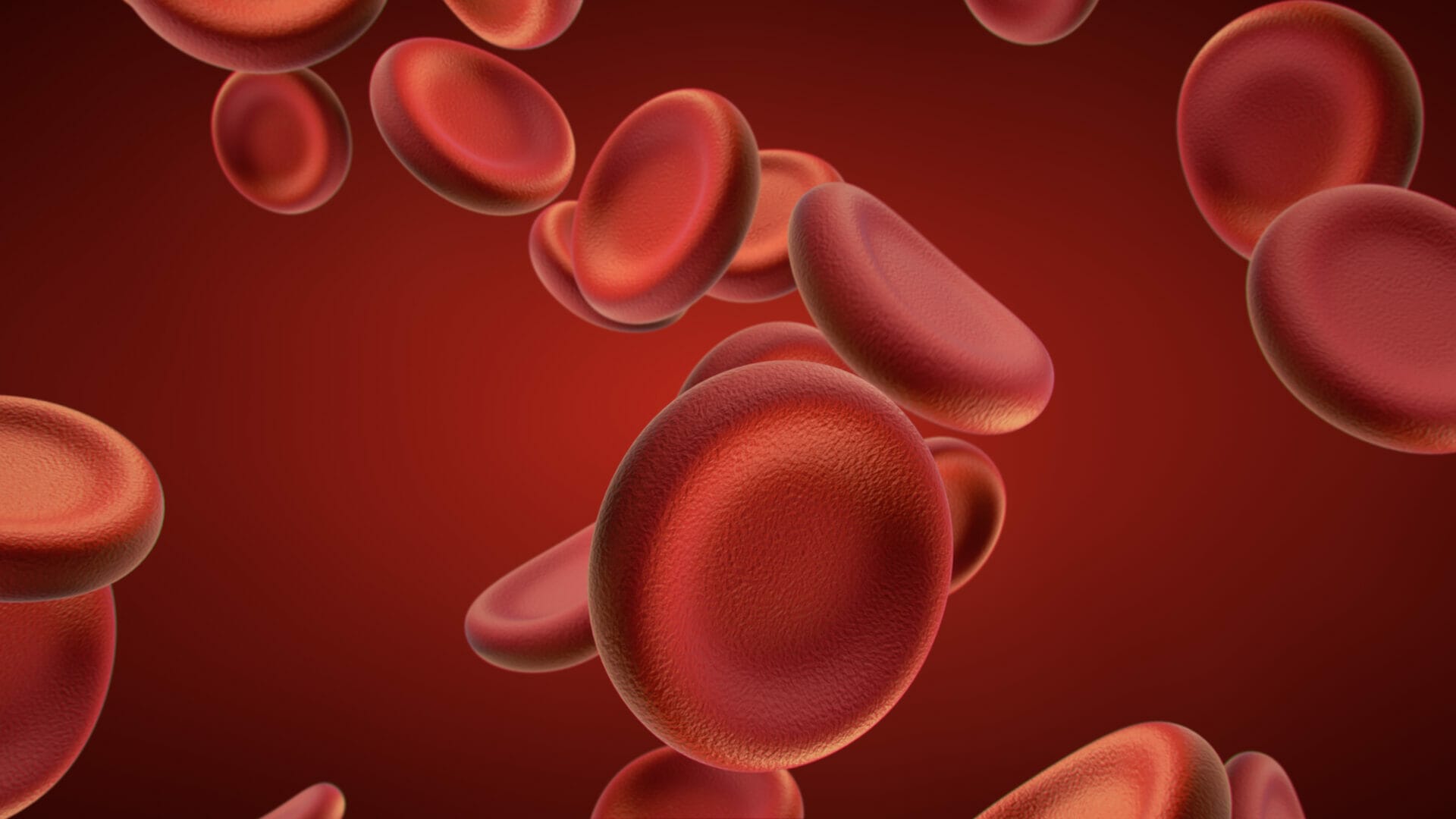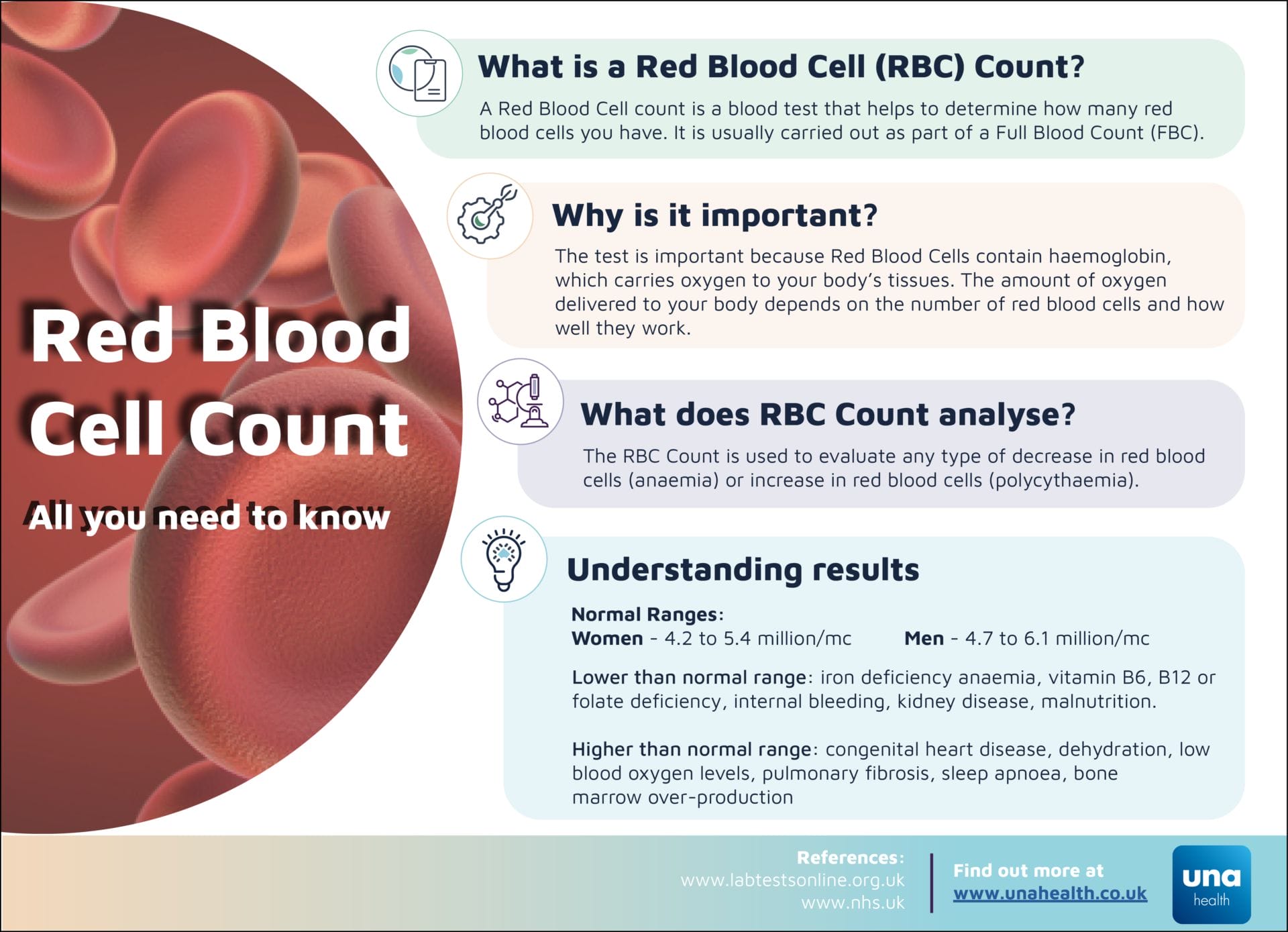
Red Blood Cell Count – all you need to know
A Red Blood Cell (RBC) Count is a common test usually carried out as part of a Full Blood Count (FBC).
Red blood cells are one of the major components of your blood, together with white blood cells and platelets. They play a vital role in carrying the oxygen from your lungs to the cells in your body and transporting carbon dioxide from the cells to the lungs. This is done through a protein in the red blood cells called haemoglobin. The amount of oxygen delivered to your body depends on the number of red blood cells and how well they work.
An increase or decrease of red blood cells in your blood can cause a variety of symptoms. It can lead to health complications if left unattended or untreated.
A lower than normal RBC count can cause fatigue or tiredness, dizziness (particularly when standing), shortness of breath, headaches, chest pain, and heart palpitations.
A higher than normal RBC count can cause chest pain, muscle pain, increased blood pressure, headaches, ringing in the ears, blurred vision or dizziness.
Check out our infographic to find out more.

